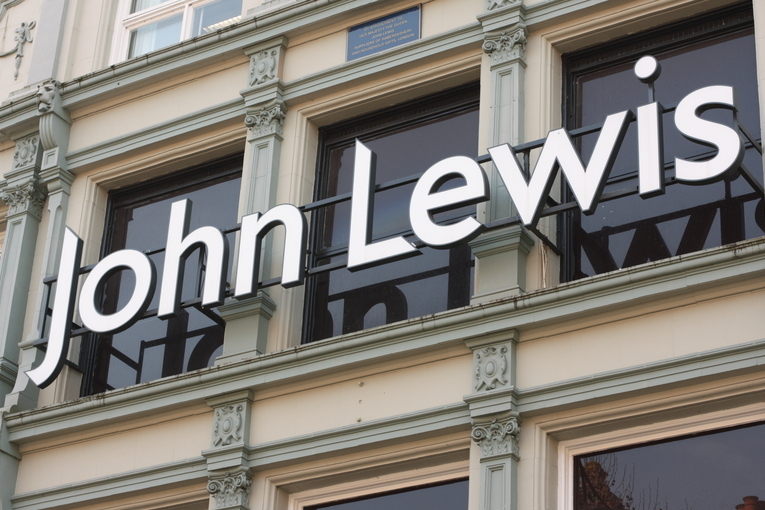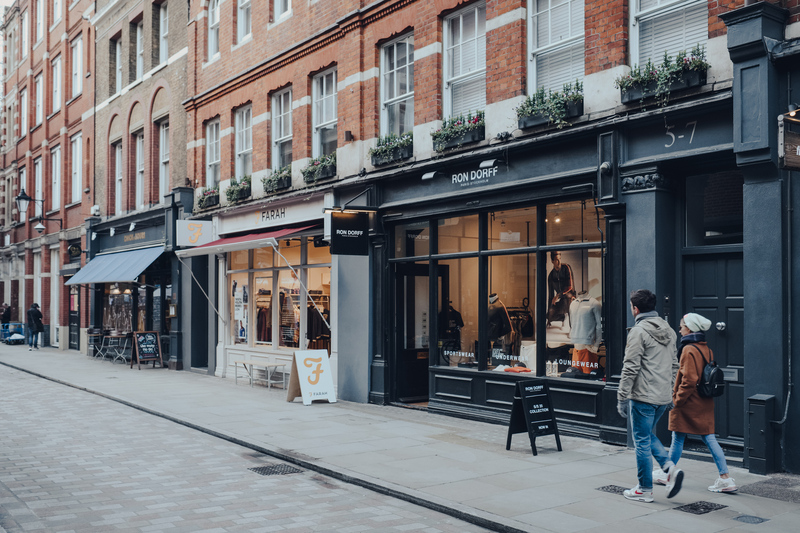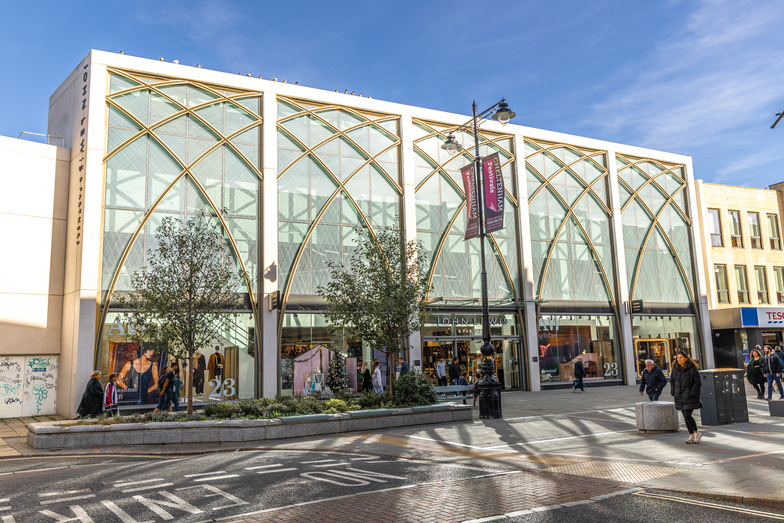When I look at the businesses that are not just surviving but thriving, one common denominator stands out: a clear sense of purpose, deeply rooted in their people and their place within the community.
Why Purpose Matters More Than Ever
Purpose-driven businesses aren’t a new phenomenon, but they are more vital than ever. Whether you’re a small independent retailer, a leisure operator, a hospitality venue, or a national chain, today’s customers, and employees want more than just a transaction. They want to know what you stand for. What makes your business worth supporting? Why should they choose you, stay loyal, and advocate for you?
And importantly, purpose is not just external. It must be lived internally by your leadership and teams. It’s the shared set of values, ethical practices, and community engagement that shape the culture and the customer experience.
This is something co-operatives have understood for generations. Co-op’s are based on values like self-help, self-responsibility, democracy, equality, equity, and solidarity. Their ethical principles; honesty, openness, social responsibility, and caring for others are embedded in every decision, every colleague interaction, and every member relationship. These are more than slogans; they are lived daily through the actions of their members and colleagues. It’s these principles that create not just customers but members. People who feel ownership, a sense of belonging and loyalty.
Similarly, the John Lewis Partnership stands as a beacon of purpose-led retail. As the UK’s largest employee-owned business, John Lewis operates on a model where every colleague is a Partner, owning a stake in the business. Their success is shared and rewarded, through the annual Partner Bonus, ensuring every individual has a vested interest in the brand's future.
John Lewis has built its reputation on quality, service, trust, and longevity. Over 85,000 Partners are not simply employees, they are owners. This model fosters pride, self-responsibility, and long-term commitment.
The result? The company is known for its high-quality customer service and "Never Knowingly Undersold" price promise. A market share of 6.7%, consistent customer loyalty, a brand that it seen as trusted and fair.

Membership, Partnership & Ownership: Loyalty’s Secret Weapon
This idea of membership (as in co-ops) or partnership (as in John Lewis) is powerful. When people feel ownership whether through formal structures or an organisational culture that values them, they behave differently. They care more. They take responsibility. They become ambassadors.
Members and Partners aren’t passive participants. They have a say, a stake, and a sense of self-responsibility for the business’s success. In turn, customers feel that authenticity and trustworthiness. They know their money is supporting ethical business practices, fair employment, and local communities.
In an industry facing skills shortages, recruitment challenges, and customer churn, creating a business environment where people feel valued and respected pays dividends. Colleagues stay longer. Customers return. Communities flourish.
At The Retail Champion, we firmly believe in this. Internally, our team of consultants live and breathe these values. We’re a collaborative group of ethical experts who share knowledge freely, support one another, and genuinely care about the outcomes we deliver. This collective approach ensures we’re stronger together and committed to creating lasting change for the businesses we support.
And we don’t just talk about it; we practise it. We’ve helped thousands of businesses across the UK ranging from global brands like Blenheim Palace and the Natural History Museum to small local play centres and independent retailers—improve not only their profitability but their community impact and customer loyalty.

Building Sustainable Businesses – For the Long Term
But it’s not just about the here and now. Embedding purpose and values is key to building businesses fit for the future.
The UN’s 17 Sustainable Development Goals (SDGs) offer an excellent framework to align business practices with broader social and environmental objectives. From Decent Work and Economic Growth (Goal 8) to Climate Action (Goal 13), businesses of all sizes whether on the high street or in leisure, retail, or hospitality can make a difference.
For example, John Lewis has set a bold target to be a net-zero carbon business by 2050, aligning with UK government goals. Retailers adopting sustainable practices are not only reducing environmental impact, they’re also seeing bottom-line benefits.
A Community-Centric Future
2025 marks the Year of the Co-op, a timely reminder of how community-focused businesses can create real, lasting impact. But why should this ethos be exclusive to co-operatives?
At The Retail Champion, we work with businesses of all shapes and sizes; high street independents, visitor attractions, global brands and the common thread that runs through success stories is always the same: a focus on people, place, and purpose.
It’s about ensuring your digital and in-store experiences are seamless. It’s about investing in skills, training, and leadership that reflect your internal values. It’s about silent selling through great customer experience, whether online, at the checkout, or in the cleanliness of your toilets!
Ultimately, it’s about recognising that your people; your colleagues, members, customers, and communities are the heart of your business.
If we lead with values, prioritise ownership, and remain committed to serving our communities, we’ll not only survive the current challenges we’ll thrive long into the future.
Building Businesses That Stand Out
So, how do you take these values and apply them to your own business, especially in tough times?
Here are some key takeaways:
1. Understand Your Customer’s Changing Needs
Post-pandemic, cost-of-living pressures and digital acceleration have permanently shifted customer behaviour. Convenience, value, and ethical credentials all matter. Make it easy to shop with you whether online or in-store.
- Is your website discoverable and user-friendly?
- Can customers check out smoothly?
- Is it simple to request refunds or resolve issues?
- Do you reward loyalty, through membership schemes, community initiatives, or excellent service?
2. Invest in People
Recruitment remains a challenge, particularly in retail, hospitality, and leisure. Upskilling, training, and creating a culture where colleagues feel valued and empowered makes a significant difference. It reduces churn, boosts service quality, and fosters loyalty. I sit on the Board of the ISP (Institute of Sales Professionals) because I firmly believe in professionalising skills development to drive long-term business success.
3. Focus on the In-Store & Online Experience
Silent selling, whether through clean, well-merchandised stores, clear digital navigation, or small touches like spotless toilets stocked with essentials - it all matters. Every customer touchpoint builds trust.
4. Be Community-Centric
Consumers want to spend their money with brands that give back, support local initiatives, and create meaningful connections. The businesses that embed themselves in their communities becoming meeting places, supporting local causes, championing inclusivity are the ones that endure.
Aligning Business with Global Goals
Looking to the future, aligning business practices with broader societal goals is no longer optional, it’s essential. The UN’s 17 Sustainable Development Goals (SDGs) provide an excellent blueprint, covering everything from Decent Work and Economic Growth (Goal 8) to Responsible Consumption and Production (Goal 12) and Climate Action (Goal 13).
Did you know that according to Accenture, UK retailers could save over £4 billion annually by implementing sustainable practices? Or that 58% of UK consumers expect brands to be transparent about their sustainability efforts?
Embedding these principles not only future-proofs your business but also enhances your brand reputation, attracts loyal customers, and improves profitability.
Final Thought: Shouldn’t All Great Businesses Be Purpose-Led?
2025 marks the Year of the Co-op, shining a spotlight on how businesses built on values, ownership, and community engagement can thrive even in the most challenging environments.
But I’d argue this approach isn’t just for co-operatives.
Whether you’re a national chain, a high street independent, or a visitor attraction, embedding purpose, ownership, and care into every part of your business is the key to long-term success.
At The Retail Champion, it’s how we work every day with our clients, our team, and our communities. I believe it’s the blueprint every great business should follow.
If you've enjoyed this blog you may find How Small Retailers Can Thrive in 2025: Adapting to an Evolving High Street of interest or the Gym Operator Case Study.
About the Author:
Clare Bailey, The Retail Champion, is one of the UK’s leading retail and business consultants. Author of two best-selling books, a regular media commentator (BBC, Sky News, ITV), and a Director at the Institute of Sales Professionals, Clare brings decades of experience advising national brands, independent retailers, and visitor attractions. She specialises in helping businesses grow sustainably, improve customer experience, and embed purpose at their core. Passionate about people, place, and profit, Clare is renowned for her no-nonsense, actionable advice that drives long-term success.
Related Posts

Case Study | Retail Consultancy
Seeing ourselves through a new lens: How our brand strategy workshop changed everything
We often talk to our clients about the importance of strong branding. About showing up consistently, with purpose and clarity. But even experts need a fresh perspective now and then. That’s why we r...

Retail Operations | Retail Management
Navigating Uncertainty: How Retailers Can Build Resilience in a Shifting Economic Landscape
In times of uncertainty, businesses that stay alert, agile and close to their customers are the ones that weather the storm and often come out stronger on the other side....

Retail Management | Retail Experts | Retail Consultancy
Boosting Sales & Footfall: Proven Retail Consultancy Tips for UK Businesses
The UK retail market is more competitive than ever. With evolving consumer behaviours, digital advancements, and economic challenges, retailers must adapt to drive both footfall and sales. Whether you...

